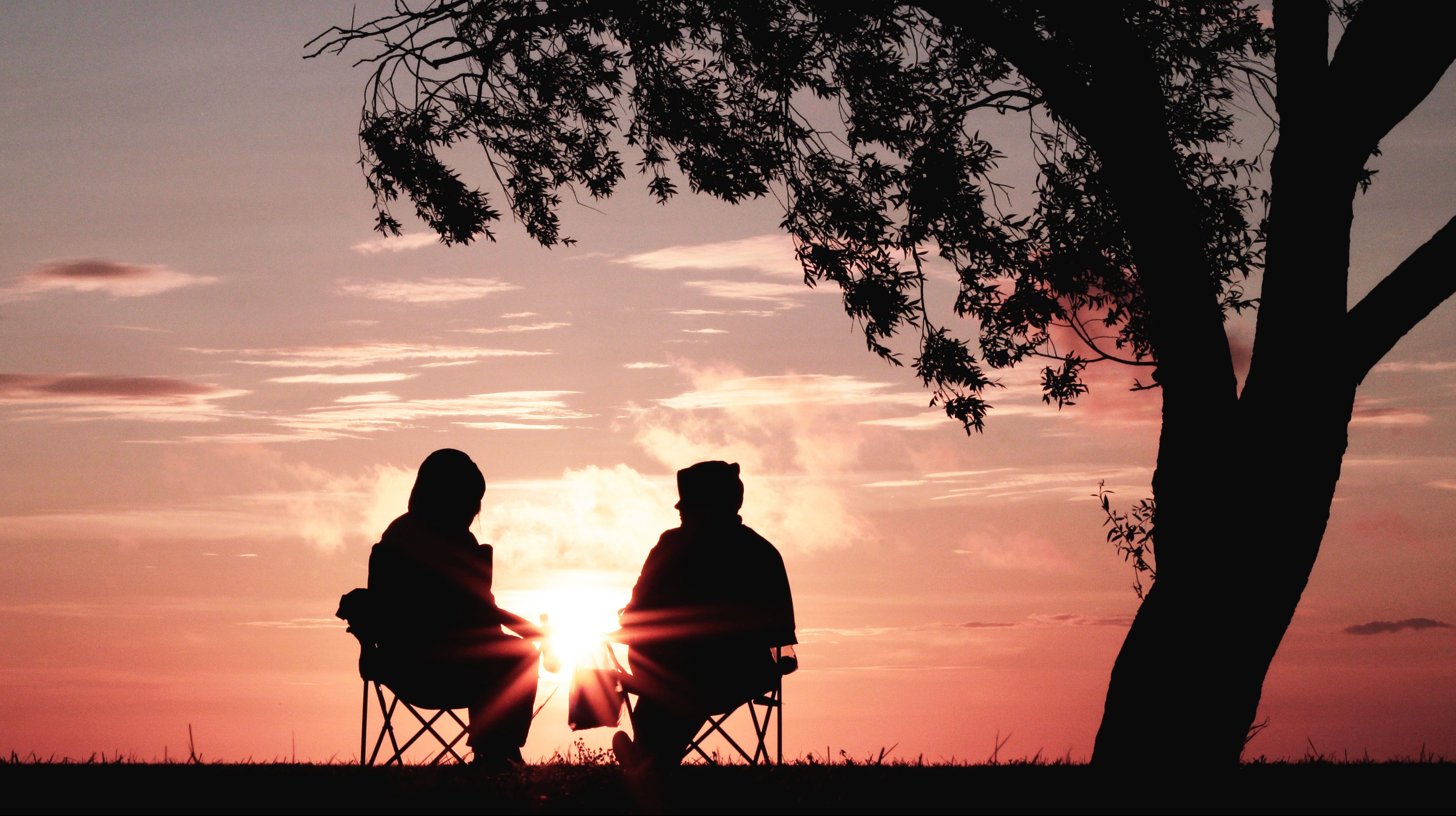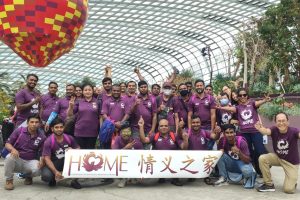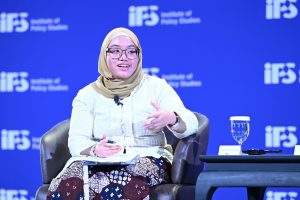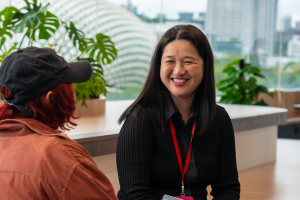Even in Singapore, an island nation where the effects of rising sea levels, shaky food security, and drying of water resources will have an outsized impact, we aren’t discussing the climate crisis nearly as much as we should be.
But one group is trying to change all that.
Founded in 2017, Climate Conversations is a non-government organisation (NGO) that aims to facilitate ‘meaningful conversations with friends and family that inspire them to care for our environment and our future’. Sounds good, right?
Of course, my first response was: “What a load of bull****”
When it comes to the climate crisis, I’ve become so jaded that my ears have begun to turn olive. As someone who’s been on both the receiving and giving end (har har) of climate advocacy, I’ve achieved a state of quiet despair over the years—people just don’t care, and when they do, it’s just enough to buy a metal straw that does more harm than good.
Into my cynical world walks Climate Conversations with its sunny front page and smiley photographs. ‘Hope Dies, Action Begins’ is a rallying cry for groups like Extinction Rebellion; ‘Meaningful Conversations’ sounds like your aunt’s tai chee brunches. So convinced was I of Climate Conversations’ absolute lack of positive qualities that I semi-jokingly penned some scathing headlines before I ever met them:
“Bold New Idea: A Climate Group That’s Preaching To The Choir”
“Climate Conversations: An NGO For Rich People At Wine Parties”
“Can Talking Save The World? The Answer May Shock You: No”
Reluctantly, I signed up for a session, expecting to be disappointed in their paltry efforts, reinforced in my eternal cynicism, and worst of all, terminally bored.
The set-up for a Conversation is simple: If you want to have a chat with your friends or family about the climate crisis, just find a time, place, and willing participants; give Climate Conversations a ring, and they’ll send a facilitator down to, well, facilitate.
Therein lay my first indictment of Climate Conversations: Because it’s a self-selecting group, only those interested in discussing the climate crisis would bother turning up.
Angela disagrees. Before each Conversation, participants are made to fill out a survey, in which they are asked, amongst other things, why they chose to attend each session. The most common reason: to catch up with friends or family members.
Jacelyn, who began her journey with Climate Conversations as a host, finds that it provides an avenue for average Singaporeans to be introduced to the climate crisis.
“I found it really difficult to bring up the subject to the people that are closest to me,” she says.
“How do I bring up [the climate crisis] to my dad? To my mum? To my good friend?”
In this way, Climate Conversations is doing more than preaching to the choir. In fact, it’s cleverly piggybacking on existing human networks to spread the message of climate advocacy.
“It’s a bit like Evangelism,” laughs Jacelyn, “But not quite!”
I find it an apt comparison.

Many people are intellectually aware of the climate crisis, but don’t emotionally recognise the depth of the issue, and are uncommitted to change. With Climate Conversations, you hear about these problems not from a random lecturer, but your own child, relative, colleague, or friend. A core purpose of Climate Conversations is to awaken that deeper understanding within participants.
The Conversations are structured to shape such an understanding. At the start of our session, Angela asks a simple question: What do you value in your life? With some guidance, we are able to build the inevitable links between these ‘things’ and the climate crisis.
24-year-old Cheryl Cosslett, a government relations analyst, said that the Conversation made her more aware of the interplay between climate change and many issues that she feels strongly about: inequality, poverty, and education, for example. Often, climate change is the silent factor kicking these problems into overdrive.
So not exactly preaching to the choir, is it?
It’s often said, however, that the climate crisis is a rich man’s problem, and the network-reliant nature of the Climate Conversations makes it all the more likely that their message will only be accessible to the elite in Singapore society.
“Recently,” counters Jacelyn, “Our team held a Conversation for several mothers at the Henderson Community Centre (CC). To these women, climate change may not be a part of their immediate lives … But if they come to the realisation that it affects people they love, that they care about, they become more receptive to the issue. They want the best for their children.”
As of writing this article, Climate Conversations has engaged with the likes of the National Environment Agency (NEA) and the Ministry of the Environment and Water Resources (MEWR). Alongside CCs, these are some organisations that may invite Climate Conversations’ facilitators to run sessions for interested parties, hopefully creating new branches of the network from each event.
But we’ve got one more hurdle to cross, and it’s the biggest one yet: Translating these fireside chats into tangible action. It’d be a shame if nothing more came from a Conversation than commitments to eat less meat on weekdays, turn off the A/C after 10 PM, buy fewer useless plastic ding-dongs, or whatever.
In addition to facilitators, Climate Conversations has a group of researchers who look for opportunities to recommend actions that facilitators can take to their Conversations.
A recent example is Climate Conversations’ review of Singapore’s new electricity providers. After evaluating each competitor, researchers provided environmentally-focused recommendations; electricity providers like solar-powered Sunseap are featured on the list.
“It just takes twenty minutes out of your day to switch energy provider,” says Jacelyn, “Everyone in Singapore is pressed for time; we want to look for something that is easy to do.”
During our Conversation, Angela asks us to brainstorm other collective actions that can show governments and businesses the need for climate-conscious decisions. Examples of past actions include Old Chang Kee’s switch to sustainable palm oil, Standard Chartered’s commitment to cease funding for coal-fired fuel plants, and yes, the plastic straws ‘ban’.

Zhengyi Zhu, 31, a management consultant, talks about improving the environment through economically sustainable business ventures. Management consultancies have the opportunity to promote and support the sustainable transformation of big business.
Jacelyn addresses the demand side of the problem, encouraging consumers to make their voices heard by rejecting brands that participate in unsustainable practices. Both she and Angela espouse that the ‘consultative’ 4G government looks poised to listen, and the crisis-aware should be reaching out to policymakers at every opportunity.
“It is difficult for Singaporeans to be environmentally sustainable,” says Jacelyn, “Because the system isn’t set up that way. The responsibility of the rest of us is to change the system so people from all walks of life can subscribe to that without really investing a lot of effort”.
But I remain sceptical of this approach.
To solve this problem will require sacrifice, or at least, the relinquishing of many conveniences that we enjoy every day. The reality of the climate crisis is that the poor and disenfranchised are at this very moment being punished for the excesses of the wealthy (that’s us, by the way).
After the conversation, two participants discuss the difficulty in promoting sustainability initiatives at their company; some of their biggest clients are linked to the oil industry. The Powers that Be do not plan to go gently into that good night; I wonder if what’s required isn’t a little more than consumer action.
Of course, I’m asking a lot from us. With any luck, groups like Climate Conversations are just the beginning; as my comrade Poe Dameron said in The Last Jedi, “We are the spark”—and the spark must needs come before the flame.
And make no mistake, fire is coming. Half a degree shy, two minutes to midnight, eleven years to go. I’ve mentioned before that the least we can do about the climate crisis is to talk about it; when talking gets too difficult, Climate Conversations is here to help.
There is still a little time left to mitigate this calamity, and we’ve got to start acting like it.






